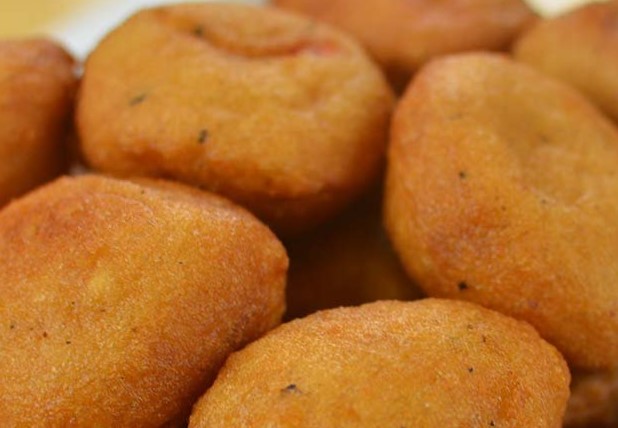“Koose†has made it to the international scene. “Kooseâ€, a Ghanaian delicacy and side dish, is prepared by deep or shallow-frying thick cowpea paste, which is usually mixed with onions, spices and other condiments.
“Koose†has been recognised by the international food science community as a potential functional food, that is, food that can promote health and prevent diseases.
This recognition was made when a research conducted by Dr Franklin Apea-Bah was published in the journal “Food Chemistryâ€, one of the top ten highest-ranked scientific journals in the area of Food Science and Technology.
Dr Apea-Bah, a Senior Research Scientist at the Biotechnology and Nuclear Agriculture Research Institute of the Ghana Atomic Energy Commission, in collaboration with food and health scientists at the University of Pretoria in South Africa conducted a research on “Kooseâ€. The research team was led by Prof. Kwaku Gyebi Duodu, a lead scientist in Functional Foods and Nutraceuticals, and an associate professor of Food Chemistry and Food Engineering at the University of Pretoria, South Africa.
Health benefit
The research was to determine whether “Koose†had the potential to alleviate oxidative stress, a health condition that could lead to the inflammation of cells and several consequent chronic diseases such as hypertension, stroke, cancer and diabetic complications. The scientists used advanced techniques to prove that “Koose†contained health-promoting chemicals, called phenolic compounds, which can react with and remove chemical species, called free radicals, which otherwise can react with body cells, proteins, carbohydrates, fats and DNA in living tissues and damage them.
Such damage can then lead to the afore-mentioned diseases. Through laboratory-based experiments, the researchers demonstrated that “Koose†can prevent damage to the genetic material, DNA, which when irreversibly damaged, can lead to either the death of cells or changes in the function of the cell and possibly cancer formation. They further confirmed that “Koose†prevented free radical damage to body cells which if not prevented, can lead to the death of cells and aging.
This research, which was published by the journal “Food Chemistry†(impact factor 4.529: 2016) in May 2017, confirmed earlier studies that cowpea beans contain the health-promoting phenolic compounds that serve as antioxidants and can prevent free radical damage to body cells and tissues.
In related studies under Prof Duodu’s supervision, two scientists, Dr. Twambo Hachibamba (from Zambia), and Dr Alice Nderitu (from Kenya) demonstrated that boiled cowpea beans could protect against the proliferation of cancer cells and the onset and progression at cardio vascular diseases (hypertension).
Antioxidants
In recent years, antioxidants have become highly topical due to their ability to prevent chronic disease onset and progression as well as slow-down aging. This has resulted in formulation of several health-promoting products using antioxidant-containing plants such as aloe vera, olive oil, cinnamon and several others.
It is interesting to note that dry legumes such as cowpea beans are also good sources of antioxidants and their consumption can help promote the health of consumers. It is important to note, however, that consumption of too much oil can lead to negative health effects, such as heart-related diseases. Therefore, “Koose†and other fried foods should be eaten at moderate levels. Boiling and other applicable methods for cooking cowpea beans can thus provide other useful ways to prepare and eat our health-promoting cowpea beans.





